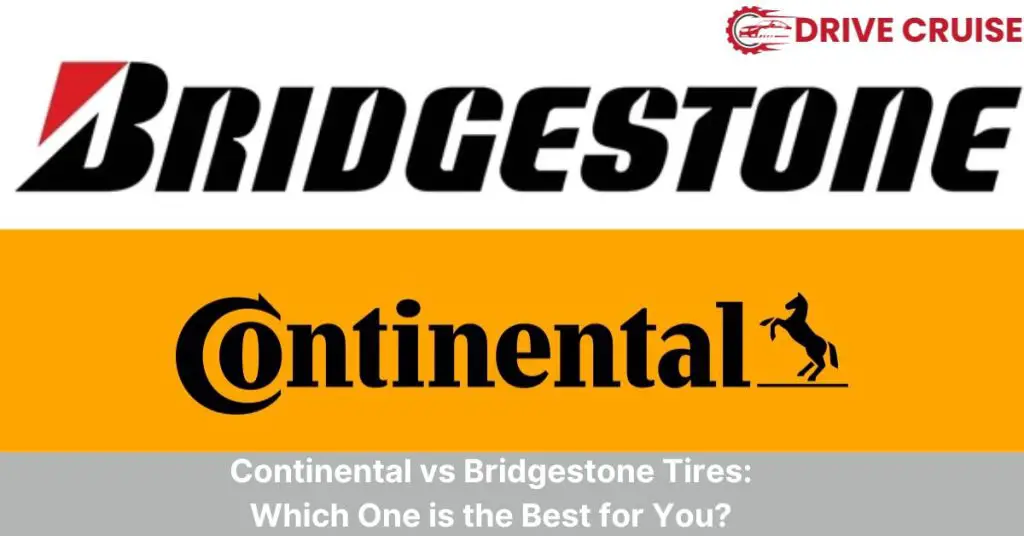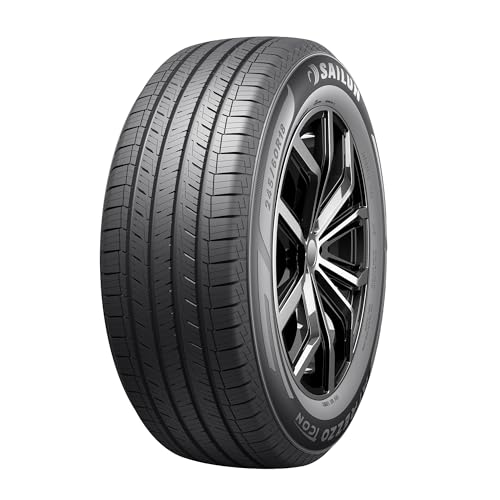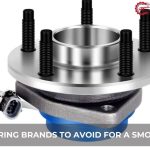When it comes to choosing the right tires for your vehicle, you want to make sure you’re getting the best quality and performance for your money. Continental and Bridgestone are two of the world’s leading tire manufacturers, known for producing a wide range of tires across various performance categories. Whether you’re a daily commuter, a weekend road tripper, or a performance enthusiast, both Continental and Bridgestone offer options that can meet your driving needs.
In this article, we’ll provide a balanced comparison of Continental and Bridgestone tires, taking a closer look at the strengths and weaknesses of each brand. We’ll also consider the different driving needs and conditions for which each brand may be best suited. By the end of this article, you’ll have a better understanding of which brand may be the best choice for your vehicle and driving habits. So, let’s dive in and explore the world of Continental vs Bridgestone tires.
Performance Breakdown: A Category-by-Category Analysis
Passenger Car Tires
All-Season Tires
When it comes to all-season tires for sedans, coupes, and minivans, both Continental and Bridgestone offer reliable options. Continental’s PureContact Plus features a tread pattern designed to provide a balance of dry, wet, and light winter performance. Similarly, Bridgestone’s Turanza QuietTrack offers a comfortable ride with reliable all-season traction.
Performance Tires
For drivers who prioritize handling and responsiveness, Continental’s ExtremeContact DWS06+ and Bridgestone’s Potenza S007A are both excellent choices. Both tires offer impressive grip and handling, making them ideal for spirited driving.
Comfort Tires
If you’re looking for comfort-oriented tires, both Continental and Bridgestone have options that prioritize a smooth and quiet ride experience. Continental’s TrueContact Tour and Bridgestone’s Turanza Serenity Plus are both great choices for drivers who value ride comfort.
Light Truck and SUV Tires
All-Terrain Tires
For SUVs and light trucks, both Continental and Bridgestone offer all-terrain tires that provide a balance between on-road comfort and light off-road capability. Continental’s TerrainContact H/T and Bridgestone’s Dueler A/T Revo 3 are both excellent choices for drivers who need versatility from their tires.
Highway Terrain Tires
Both Continental and Bridgestone offer highway terrain tires that prioritize on-road performance and fuel efficiency for SUVs and light trucks. Continental’s TerrainContact HT and Bridgestone’s Ecopia H/T are both great options for drivers who spend most of their time on paved roads.
Truck Tires
If you’re looking for truck tires, both Continental and Bridgestone offer options depending on your needs. Continental’s TerrainContact A/T and Bridgestone’s Dueler H/T 684 II are both solid choices for all-terrain and highway terrain, respectively.
Cross-Referencing Considerations
It’s important to note that specific tire models within a category might have unique strengths depending on the manufacturer. For example, while Continental’s PureContact Plus is a great all-season tire, Bridgestone’s Turanza QuietTrack might offer better longevity. It’s important to consider your specific needs when choosing between Continental and Bridgestone tires.
Beyond Performance: Exploring Value and Ownership
When it comes to buying new tires, performance is not the only factor to consider. In this section, we will explore other important aspects of tire ownership beyond just performance. Specifically, we will discuss treadwear and expected lifespan, ride comfort and noise levels, fuel efficiency considerations, and price and brand reputation.
Treadwear and Expected Lifespan
One of the most critical factors to consider when buying new tires is their expected lifespan. Both Continental and Bridgestone offer warranties on their tires, but the specifics can vary depending on the tire model. In general, Bridgestone tires tend to have a longer lifespan compared to Continental tires. Bridgestone tires typically last between 45,000 and 80,000 miles, while Continental tires have a range of 20,000 to 70,000 miles.
It’s important to note that expected tread life can vary depending on the category of tire. For example, high-performance tires tend to have a shorter lifespan than all-season tires. When comparing Continental and Bridgestone tires within a specific category, there may be differences in expected tread life.
Ride Comfort and Noise Levels
Another critical aspect of tire ownership is ride comfort and noise levels. Both Continental and Bridgestone have unique tread designs and construction philosophies that can affect ride comfort and noise levels. In general, Continental tires tend to offer a smoother ride with minimal vibration and harshness. Bridgestone tires tend to be louder and less comfortable than Continental tires.
However, it’s important to note that ride comfort and noise levels can vary depending on the specific tire model. User experiences and test data can provide insight into how specific tire models perform in terms of ride comfort and noise levels.
Fuel Efficiency Considerations
Rolling resistance is a critical factor to consider when it comes to fuel efficiency. Tires with lower rolling resistance can help improve fuel economy. When comparing Continental and Bridgestone tires, there may be differences in rolling resistance depending on the specific tire model.
It’s important to note that fuel efficiency considerations may not be a top priority for all drivers. However, for those who are concerned about fuel economy, it’s worth considering the potential impact of tire choice.
Price and Brand Reputation
Finally, it’s essential to consider price and brand reputation when choosing between Continental and Bridgestone tires. Pricing can vary depending on the specific tire model, but in general, Bridgestone tires tend to be more expensive than Continental tires.
Both Continental and Bridgestone are well-respected tire brands with a reputation for quality and performance. When considering which brand to choose, it’s worth researching the specific tire models you’re interested in and reading reviews from other drivers to get a sense of their experiences.
Making the Right Choice: Continental vs. Bridgestone for You
When it comes to choosing between Continental and Bridgestone tires, it’s important to consider your specific driving needs and preferences. Here are some factors to keep in mind:
Ideal Drivers for Continental Tires
If you’re looking for precise handling and innovative technology, Continental tires might be the right choice for you. Their performance and all-season tires are designed to provide excellent grip, traction, and stability at high speeds. Additionally, if you prioritize a comfortable ride experience, Continental’s comfort tire offerings may be worth considering.
Ideal Drivers for Bridgestone Tires
Bridgestone tires are a great option for drivers seeking a balance of performance, comfort, and value across various tire categories. If you prioritize fuel efficiency, Bridgestone’s Ecopia line may be a good fit for you. These tires are designed to improve fuel economy without sacrificing performance.
Additional Considerations Before Buying
Before making a decision, it’s important to consider your specific needs within a performance category. For example, if you’re looking for all-season tires, you may need to prioritize either handling or comfort. It’s also important to consider the warranty coverage and treadwear of each brand’s tires. Finally, if available, independent tire tests can provide valuable insights into the performance of specific models from both brands.
Conclusion: Choosing the Perfect Tire for Your Needs
Now that you have learned about the differences between Continental and Bridgestone tires, it’s time to choose the perfect tire for your needs. Both brands offer a wide range of tire models that cater to different driving styles, preferences, and budgets.
If you’re a sporty driver looking for high-performance tires, Continental is the brand for you. Their tires offer superior handling, precision, and braking abilities at high speeds. The Sport Contact 7 model is an excellent choice for those who prioritize dry and wet traction.
On the other hand, if you’re looking for a tire that is affordable and lasts longer, Bridgestone is the way to go. Their tires often have a lower price point and offer superior grip in slick conditions. The Potenza RE050A model is an excellent choice for those who prioritize stability, handling, and braking power.
It’s important to consider your driving needs, performance priorities, and budget when choosing the ideal tire brand and specific model for your vehicle. Make sure to do your research and consult with a tire expert to ensure that you make an informed decision.
In summary, Continental and Bridgestone are both excellent tire brands that cater to different driving styles and preferences. By considering your needs and priorities, you can choose the perfect tire that will provide you with the best driving experience.
Related Posts:
- BFGoodrich Mud Terrain T/A KM2 vs KM3: Which One to Choose?
- Continental vs Bridgestone Tires: Which One is the Best for You?
- Goodyear vs Bridgestone Tires: Which is the Best Option for Your Vehicle?
- Honda Civic Stolen Without Keys: Tips to Prevent Car Theft
- How Many Gears Does a Semi Truck Have? A Friendly Guide to Understanding Semi Truck Transmissions
- How to Complete Drive Cycle Without Driving: Tips and Tricks
- Starting Disabled Service Throttle: A Step-by-Step Guide
- Tire Squeaks When Turning: Causes and Solutions
- Toyota Highlander Off Road Mods: Enhance Your Adventure Experience
- Yokohama Advan Sport A S Plus Review: A Friendly Guide to a Top-Performing Tire












